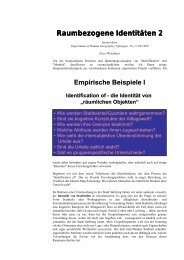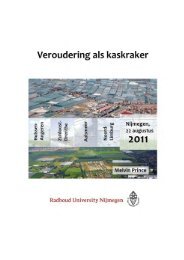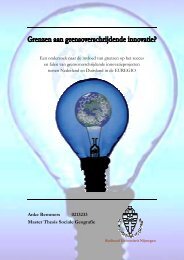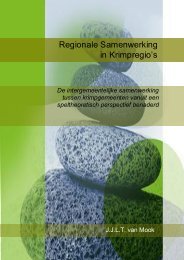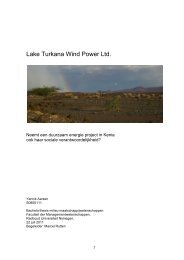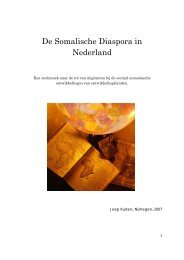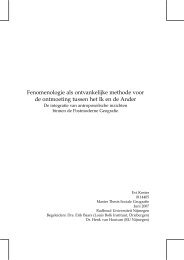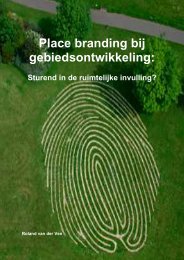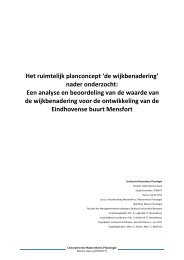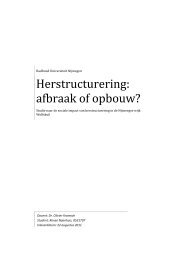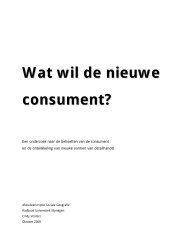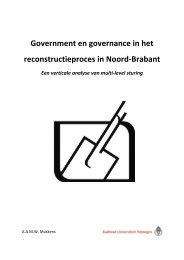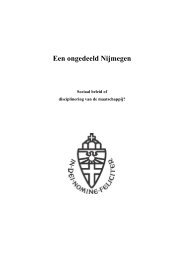Trading with the enemy in Mitrovica, Kosovo. - RUhosting
Trading with the enemy in Mitrovica, Kosovo. - RUhosting
Trading with the enemy in Mitrovica, Kosovo. - RUhosting
You also want an ePaper? Increase the reach of your titles
YUMPU automatically turns print PDFs into web optimized ePapers that Google loves.
(respondent #4). A Serb work<strong>in</strong>g <strong>in</strong> <strong>Kosovo</strong> says that it is impossible to have relations <strong>with</strong> Albanians <strong>in</strong><br />
public or tell your real op<strong>in</strong>ion about <strong>the</strong> situation, but <strong>in</strong> private it is no problem (respondent #10). An<br />
Albanian from <strong>Mitrovica</strong> south says almost exactly <strong>the</strong> same: “On a personal level, people can get along<br />
pretty well. But at public ga<strong>the</strong>r<strong>in</strong>gs it is not so easy, because your own community can lash at you for<br />
hav<strong>in</strong>g contact <strong>with</strong> ‘<strong>the</strong> o<strong>the</strong>rs’”. It is possible to cooperate, just not officially (respondent #17). This is<br />
heard quite often, direct family or friends have no problem <strong>with</strong> people hav<strong>in</strong>g contact <strong>with</strong> <strong>the</strong> o<strong>the</strong>r ethnic<br />
group, but it is <strong>the</strong> rest of <strong>the</strong> society that causes problems (field notes, respondent #1).<br />
It is hard to really get a grasp on <strong>the</strong> rules, because <strong>the</strong>y are unwritten and <strong>the</strong>ir usage varies per situation and<br />
location. “People here have fake morals” respondent #2 tells me when he gives <strong>the</strong> example of two Turkish<br />
girls who live <strong>in</strong> <strong>Mitrovica</strong> North, and were always <strong>with</strong> <strong>the</strong> Serbs and aga<strong>in</strong>st Albanians. However, when<br />
recently <strong>the</strong>y made a music video <strong>with</strong> an Albanian artist <strong>the</strong>y were discrim<strong>in</strong>ated aga<strong>in</strong>st. Respondent #2<br />
came <strong>in</strong>to <strong>the</strong> office and a woman who also works <strong>in</strong> <strong>the</strong> same build<strong>in</strong>g was show<strong>in</strong>g students this video and<br />
talk<strong>in</strong>g very badly about those ‘Turkish traitors’. This same woman gets her salary from <strong>the</strong> Albanian<br />
government for her own project, which she hides under <strong>the</strong> flag of <strong>the</strong> World Bank. People are quick to work<br />
<strong>with</strong> Albanians <strong>the</strong>mselves if it br<strong>in</strong>gs <strong>the</strong>m benefits, but are also easy to judge o<strong>the</strong>r Serbs for work<strong>in</strong>g <strong>with</strong><br />
Albanians (respondent #2).<br />
5.6. How this context shapes and limits <strong>in</strong>ter-ethnic trade.<br />
In this chapter <strong>the</strong> current state of <strong>in</strong>ter-ethnic relations <strong>in</strong> <strong>Kosovo</strong> and specifically <strong>Mitrovica</strong> has been<br />
discussed, as well as how <strong>the</strong>se have changed dur<strong>in</strong>g <strong>the</strong> past 30 years and are <strong>in</strong>fluenced by <strong>the</strong> economy<br />
and politics. Albanians and Serbs have different perspectives on <strong>in</strong>ter-ethnic relations. Albanians are<br />
politically quite open to it, but on a personal level not really eager to <strong>in</strong>clude Serbs <strong>in</strong> <strong>the</strong>ir society yet.<br />
Because <strong>the</strong> politics of Albanians are currently pro-<strong>in</strong>tegration - whe<strong>the</strong>r or not this is <strong>in</strong>ternalised <strong>in</strong> <strong>the</strong><br />
Albanian m<strong>in</strong>dset - <strong>the</strong>re are less obstacles for Albanians to engage <strong>in</strong> <strong>in</strong>ter-ethnic contact. This has at least<br />
transformed Prist<strong>in</strong>a <strong>in</strong>to a city where Serbs are tolerated aga<strong>in</strong>, and have become a normal part of life. In <strong>the</strong><br />
rest of <strong>Kosovo</strong> it is not go<strong>in</strong>g so quickly. Serbs <strong>in</strong> <strong>the</strong> enclaves face more obstacles when engag<strong>in</strong>g <strong>in</strong> contact<br />
<strong>with</strong> Albanians, but bare necessity might make this contact <strong>in</strong>crease <strong>in</strong> frequency and this might also reduce<br />
some obstacles as it becomes more accepted. In <strong>the</strong> Serbian north of <strong>Kosovo</strong> contact rema<strong>in</strong>s very difficult, if<br />
not impossible. It is happen<strong>in</strong>g though, if <strong>the</strong>re is mutual benefit, as will be seen <strong>in</strong> <strong>the</strong> next chapter.<br />
Reconciliation projects have shown to have a very limited, if any, success and generally failed at really<br />
<strong>in</strong>fluenc<strong>in</strong>g <strong>in</strong>ter-ethnic relations. The local population on both sides of <strong>the</strong> river has grown hostile aga<strong>in</strong>st<br />
<strong>the</strong>se programmes and feels be<strong>in</strong>g forced <strong>in</strong>to lik<strong>in</strong>g <strong>the</strong>ir <strong>enemy</strong>. The <strong>in</strong>ter-community rules dubbed <strong>the</strong> “<strong>the</strong><br />
rules of <strong>the</strong> <strong>in</strong>ter-ethnic game” have also been discussed as <strong>the</strong>se rules seem to be both a product as well as a<br />
cause of <strong>the</strong> current relations between Albanians and Serbs <strong>in</strong> <strong>Kosovo</strong>.<br />
66



